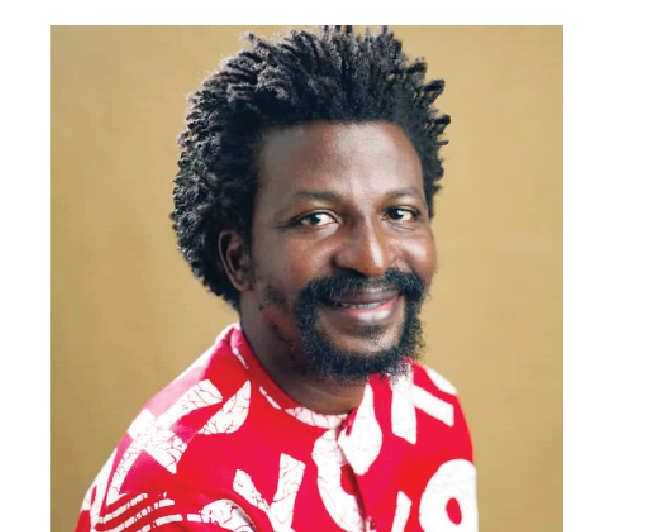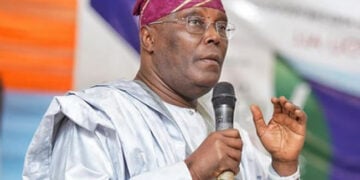Badru Taofeek is a Nigerian multimedia artist whose practice is firmly anchored in textiles, sculpture, and visual storytelling.
Rooted deeply in Yoruba culture, proverbs, history, and folklore, he creates hand-embroidered textile installations, linear paintings, and sculptures that explore themes of identity, power, resilience, and tradition.
His artistic process involves extensive hand embroidery, sculpting, and the use of indigenous fabrics such as Aso Oke. “I use my art to create immersive narrative installations that invite viewers to reflect on deeper societal issues, often through the lens of African proverbs and collective memory. My style leans heavily on symbolism and texture to communicate ideas around leadership, culture, sacrifice, and legacy,” he stressed.
Taofeek, who was the Absa L’Atelier Ambassador for 2022, traces his artistic journey to his early connection with storytelling, culture, and craftsmanship. To him, “Growing up surrounded by Yoruba traditions and visual richness, I became fascinated by the power of symbols, proverbs, and history. Over time, this evolved into a passion for expressing those stories through textiles and sculpture. Reading books and watching documentary videos have also fuelled my creative direction.”
Sharing his experience of business success, Taofeek has been fortunate to receive both local and international recognition. “I’ve participated in prestigious exhibitions like the Textile Biennale ‘Image of Power’ in the Netherlands, where I won the Viewers’ Choice Award in 2023 and earned a fully sponsored solo exhibition at Museum Rijswijk in 2024. I’ve also exhibited across Nigeria and won awards such as Best Textile Artist at LIMCAF multiple times, the Young Talent Award from Alliance Française, and the Absa L’Atelier Ambassador title in 2022. Each milestone has been a stepping stone, reaffirming my belief in the transformative power of art,” he pointed out.
Lucrativity
The lucrative aspect of creative work, however, requires consistency, patience, and a profound sense of purpose. Taofeek explains, “It’s not always instantly profitable, especially in the beginning, but with the right vision, professionalism, and network, it becomes sustainable. Art is more than just commercial; it builds value over time emotionally, culturally, and financially. My own career has shown that recognition and opportunities come as your work grows in impact and visibility,” he emphasised.
Challenges
Like many artists, Taofeek has faced challenges such as financial constraints, lack of institutional support, and difficulties in gaining international exposure while based in Nigeria. “One major hurdle was access to materials and production facilities, especially when working with bronze or large-scale textile installations. I overcame these by building relationships with local artisans, applying for grants, and staying committed to honing my craft. Strategic collaborations and mentorship opportunities, such as the one supported by Prof. El Anatsui to attend the Dak’Art Biennale, have also played a vital role in navigating the journey,” he said.
Advice
Offering advice to emerging artists, Taofeek urged them to be deeply rooted in their story and culture. “Let your work come from a place of truth. Master your technique, remain patient with your growth, and stay consistent even when recognition doesn’t come immediately. Learn to blend creativity with professionalism, and never stop learning. Also, seek platforms that align with your values and vision; competitions, exhibitions, and residencies can be gateways to global opportunities,” he stressed.
Biography
Badru Taofeek earned a B.A. and MFA in Textile Design from Obafemi Awolowo University, Ile-Ife. His hand-embroidered installations, linear paintings, and sculptural pieces have featured in major exhibitions, earning him several awards, including the Viewers’ Choice Award at the 2023 Textile Biennale in the Netherlands and the Absa L’Atelier Ambassador title in 2022.
He is also a three-time LIMCAF Best Textile Artist winner. His latest solo exhibition, Thorns and Crown (June 2025), examined leadership and sacrifice through 14 works, 10 embroidered pieces, three bronze sculptures, and one large installation, all rooted in Yoruba visual metaphors.











